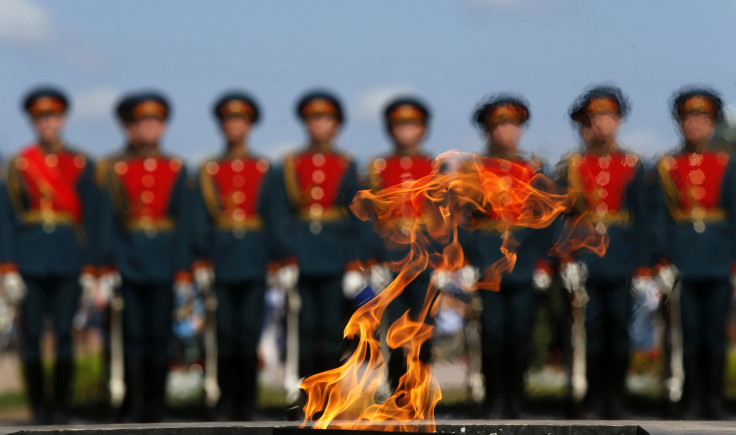Russia To Hire More Foreign Soldiers; Experts Believe Move Not Linked To Ukrainian Conflict

Russia is planning to recruit more foreign soldiers for the country’s army as part of a broader plan to professionalize its armed forces. The move comes at a time when many overseas volunteers are reportedly fighting in eastern Ukraine, although some experts believe that Moscow’s decision is not linked to the Ukrainian conflict.
According to a decree issued by Russian President Vladimir Putin, the foreign soldiers will be allowed to serve for at least five years in the Russian military only if they can speak Russian, BBC News reported, adding that most of the foreign recruits are expected to come from ex-Soviet Central Asian republics.
While Russia has denied sending troops to fight in eastern Ukraine, both Kiev and the West claim that Moscow has sent heavy weapons and well-trained military forces to help the pro-Russian rebels in the region.
According to experts, Putin’s decree is aimed at shaking up the country’s military, but the ruling could also make it easier for the Russian military forces to hire locals in parts of Central Asia, the Caucasus and in Trans-Dniester, a pro-Russian breakaway state between the Dniester river and the Ukrainian border.
“Previously they were required to get Russian citizenship, or a paper granting them Russian citizenship rights, but now they can serve legally without Russian citizenship,” Pavel Felgenhauer, a Russian military expert, told BBC News.
Alexander Golts, another defense expert, told BBC News, that the Russian army already has about 300 foreign recruits. According to him, a monthly wage of 30,000 rubles ($500) as well as an opportunity to get Russian citizenship could be incentives for some to join the Russian army.
"Sending Russian contract soldiers to Central Asia is expensive and many stay there. So taking locals is very practical," Felgenhauer told BBC News. "The possible threats are growing in Central Asia as Nato winds down in Afghanistan. So there will be a possible expansion of Russia's military presence in Central Asia - Russian officers with local soldiers."
© Copyright IBTimes 2024. All rights reserved.






















